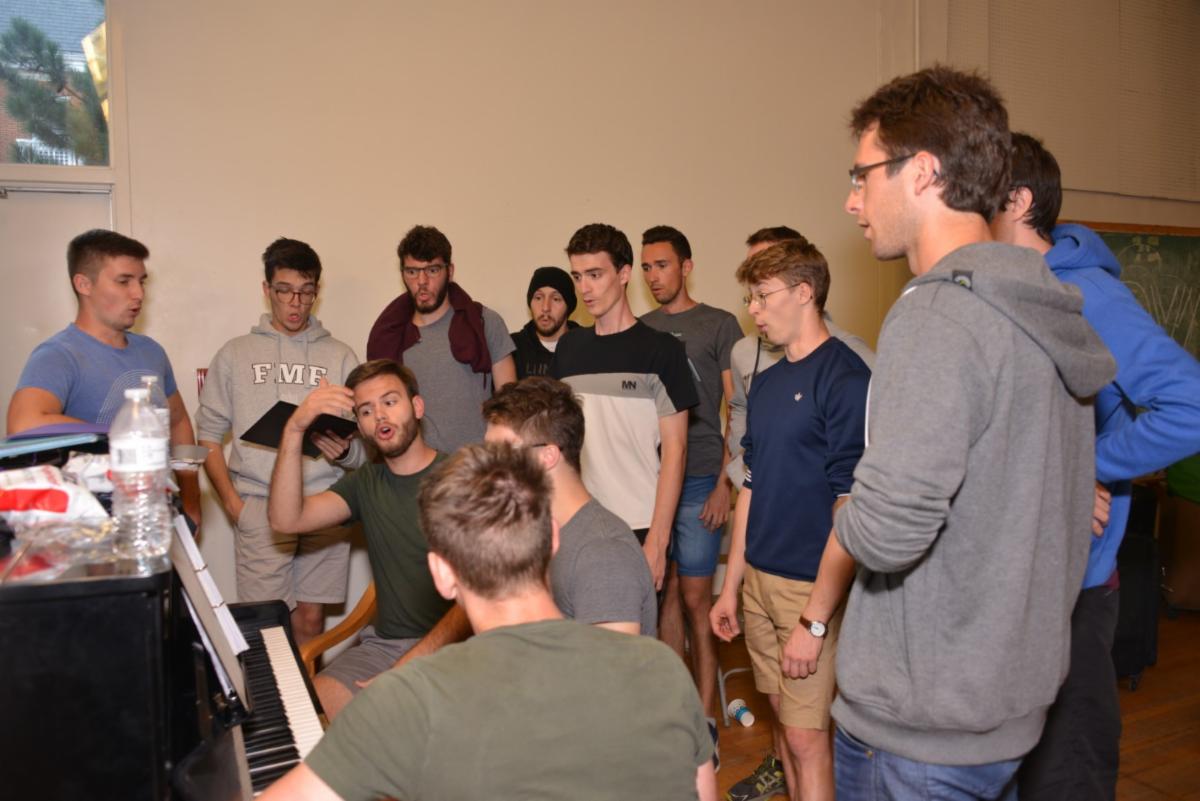
These are the meaningful words by Zvezdan Pirtošek, M.D., Ph. D., professor of neurology and cognitive neuroscience, that underpinned the versatile positive aspects of singing at the panel discussion to mark the Europa Cantat festival 2021. It will take place from 16th-25th July in Ljubljana, Slovenia. The round table entitled Choral music in psychophysical dimensions gathered experts from all walks of life, all dedicated to choral music and collective singing. They discussed the benefits of musicianship and focused on the challenges the pandemic has brought about in this field.
Benefits of collective singing Undoubtedly singing in Slovenia is a valuable asset. The astonishing numbers support this fact: 10 million hours per year of music-related voluntary work, 80.000 active singers, 2.500 singing ensembles and 1.300 conductors. All in the country with 2 million inhabitants. To start with, Sonja Greiner, Secretary General of the European Choral Association, pointed out at the well-known benefits of collective singing from physical aspects (general wellbeing), psychological features (relaxation and invigoration) to positivity brought about by the sense of community and bonding. Some other speakers at the round table discussed the astonishing fact that singing in fact regulates each singer’s emotion in relation with those of other singers, which leads to each other’s adaptation and ultimately to a more harmonious society as a whole.
What happens in human brain when we sing? Zvezdan Pirtošek was specific about the positive processes related to singing in different stages of human life from children, who respond favourably to harmonious sounds, to people with Dementia, Parkinson’s or mental health issues, who are enlivened by music. While singing, during exhalation, the vagus nerve is activated and this brings about peace of mind, state of relaxation and the sense of belonging and trusting people I feel close to. It is all about raising musical-linguistic awareness. The left hemisphere is open to semantics, analytical thinking and comprehension, the right hemisphere deepens the wonderful feeling that cannot be expressed through words, but it is so strong that as humans we will not be able to survive without songs or music.
Singing online vs. singing in a choir in person It goes without saying that when it comes to music, technology can actually bring people closer together than ever before. The sensation of feelings in the virtual or real world is activated by the same part of brain; however, there is a fundamental difference between the two. The activation of brain is much less intensive and much more limited in scope when singing online. »No digital medium cannot possibly be compared to a real life experience, especially not for children«, accentuated professor Pirtošek.
“So, I say thank you for the music” The experts wrapped up the discussion with the fact that singing boosts joie de vivre, which improves positive self-image, regulates anxieties of all types and encourages singers to overcome the individual, “soloist” needs for the benefit of a harmonious sound of the entire society. What more could we wish? “So I say thank you for the music, the songs I’m singing, thanks for all the joy they’re bringing.” At St. Stanislav’s we feel immensely proud that singing is such an important part of young people’s education. /Lily Schweiger Kotar/